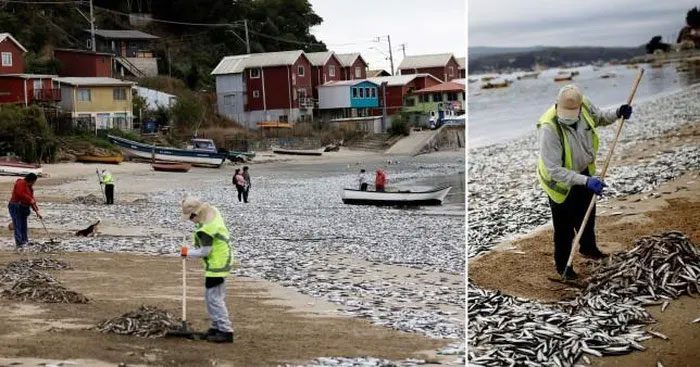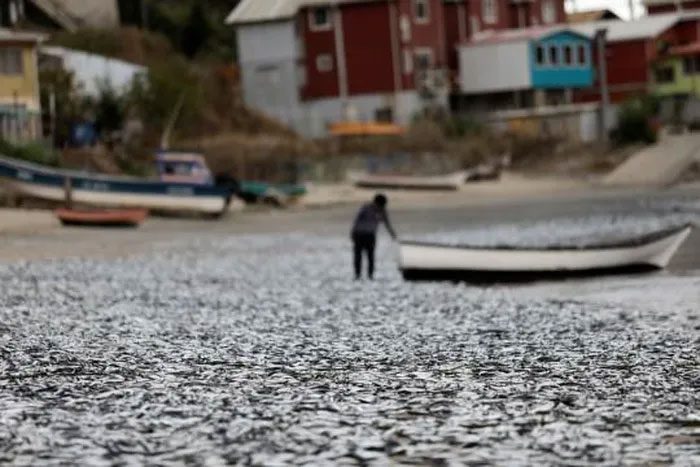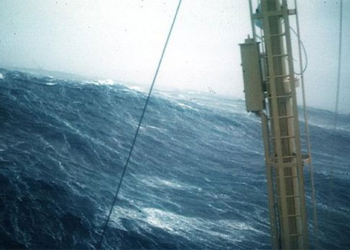Thousands of sardines and anchovies have washed up on a beach in Chile in an unexplained natural phenomenon.
Residents of Coliumo in the Biobío region of central Chile witnessed this unusual sight early in the morning. Thousands of dead fish covered the coastline.

Residents are cleaning fish remains on the beach.
Video footage shows thousands of dead fish blanketing the sand at a popular beach in Chile. They drifted ashore under strange circumstances.
The National Fisheries and Aquaculture Service stated that they are sending a team of experts to the area to conduct an investigation and determine the exact cause of the fish deaths.
Images of piles of dead fish covered in sand at Coliumo Beach have been widely shared on social media. According to local residents, the dead fish are mainly sardines and anchovies.
Ivonne Rivas, the local mayor, stated: “This is not an area that is easy to access.“
Photos circulating online show the beach turning silver due to the overwhelming number of dead fish covering the shore.

According to local residents, the dead fish are mainly sardines and anchovies.
Many locals reported that a similar event had occurred before when schools of fish swam close to shore in search of oxygen and nutrients. The investigation is ongoing.
In October 2020, a similar incident occurred when a large number of small fish stranded on a beach in Wales.
A school of sardine-like fish was discovered stranded on Benar Beach in Gwynedd by fisherman Aeron Griffith, who was preparing for a fishing trip.
He said: “I was out looking for bait with a friend, we walked down to the beach and realized that all these fish were stranded. When the tide went out, the water in the shallow area was very low, and hundreds of them were lacking oxygen.”
In April 2021, local residents in Ghana reported a similar incident when hundreds of dolphins and small fish washed ashore in Accra.
Some opinions speculate about the presence of harmful algal blooms. Algae can rapidly grow, depleting the oxygen in the water. Some species of algae also produce neurotoxins like brevetoxin, which can be fatal to fish. The accumulation of large amounts of algae during respiration forms a slimy layer on fish gills, affecting their ability to absorb the scant remaining oxygen in the water.
However, laboratory research from the specimens and initial findings suggest that the cause is a combination of environmental factors and psychological stressors.





















































